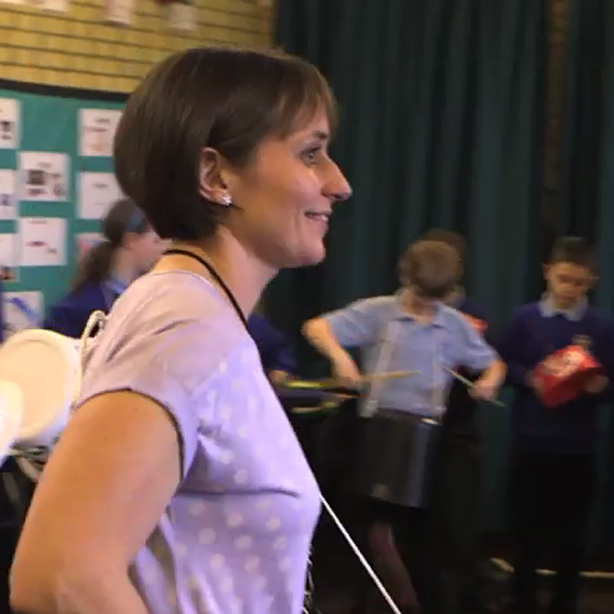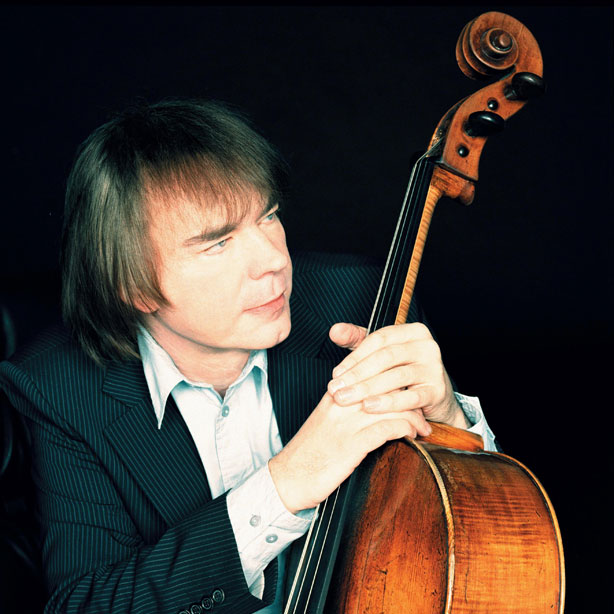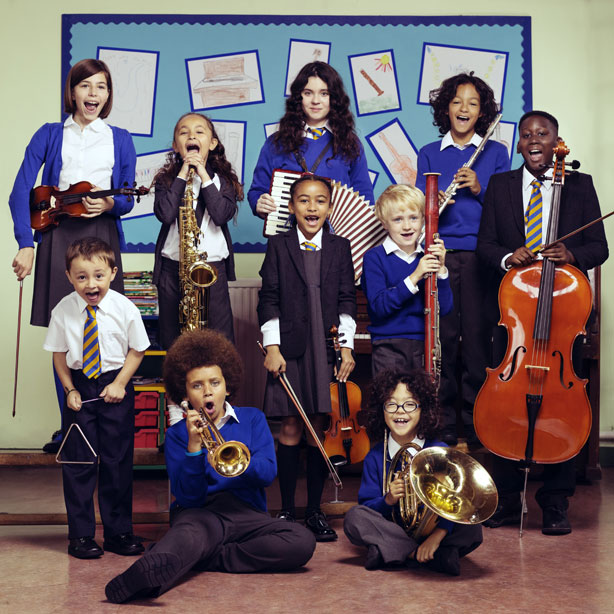Music teacher Amanda Mitchell: "Don't Stop The Music is just a starting point"
You may recognise Amanda Mitchell from episode one of Don’t Stop The Music, in which the music specialist led her ‘orchestra’ of bins and biscuit tins and told James about her £2.20-a-head music budget.
She told us what she thought of the show – and how things are going at Roysia Middle School in Hertfordshire...
“I thought the show was brilliant for highlighting the inequalities going on in music education across the country because while there are brilliant primary music school teachers there are also other schools that just don’t value music education.
Another issue that came across really well was the lack of interest shown by Ofsted. We had a similar experience as the teacher who spoke in the programme. We had an inspection last year and although their two-day visit coincided with my non-work days, I came into the school especially to talk to them. There was no interest at all and that is pretty devastating if you’re a teacher who puts everything into improving music in your school.
We have to understand that our children's education is about so much more than just literacy and numeracy, as indeed was echoed so brilliantly by Sakari Oramo in his speech at the Last Night of the Proms.
For me, Don’t Stop The Music is a starting point to get all of the real issues across. There are three things I’d say that are needed:
1. More music specialists and dedicated rooms to teach music in primary schools , so that all children benefit from quality classroom music, with singing and instruments such as recorders and classroom percussion instruments as a starting point.
2. Better distribution of funding for instrument lessons. We repeatedly hear about money from the Arts Council supporting project after project but what we really need is more money for basic instrument lessons in schools to get our children learning. My school is fortunate in that we are now teaching ‘First Access’ to our Year 6s, with one class having trumpet and the other having clarinet lessons. It is great to give them this ‘taster’ but that whole class approach it should be no more than that; say for a term, because learning with 25 children at a time is of course never really going to produce the next Alison Balsom!
Beyond this taster, instrumental lessons that we buy through hubs need to be more affordable so that any child that wants to learn can do so. These could be perhaps in small groups or individually – but in either case issues of affordability are really important. And these lessons need to be affordable. Prices within the UK vary from one hub to another. How can this be? For us, lessons at £36 an hour are just too expensive for many parents. I have one child who tells me every term that her mother has been ‘thinking of letting her play the cello’. That child has been telling me that for two years. I have another who was desperate to learn the piano but was also unable to obtain parental funding. He ended up teaching himself but had so much talent. It is a tragedy when you think what this child could have achieved with lessons.
There needs to be some kind of ‘ring-fenced’ funding that we can access for children. In addition I know of some parents/children who pay for lessons with ‘private instrumental tutors’ as it is cheaper than having lessons through their hub/school. If this is happening more widely it surely has to beg the question, why this is?
3. Increased focus from Ofsted. If music matters to them, it will matter to the school too. It’s very much down to the head teacher – whether or not they like music.
At Roysia, music is at the heart of our school. We have two main concerts a year and every child in the school takes part. We also have numerous extra curricular activities and perform at many events over the course of a year. Music is actually going very well but only because my head teacher and governing body recognise the value of music and indeed my budget from this September is more this year than ever before. We’ve now got 25% of children learning instruments beyond First Access (when I started at the school two years ago it was 8%) – but with better support for instrument lessons I am convinced it could be nearer to 50%!”
Ofsted and Arts Council England Reply
Ofsted response:
Ofsted say their inspectors check that schools provide a broad and balanced curriculum, of which music is an essential element, and that they are working with the hubs to improve music in schools.
Arts Council England response:
"Music education hubs play a key role in offering opportunities for all children and young people to experience the lifelong benefits and enjoyment that music making brings.
One of our biggest challenges is getting schools and music hubs to work well together and providing the best music experiences for as many children as possible.
Every hub develops a model of working which is based on local need and consultation with key stakeholders, including schools and parents. Models therefore can vary greatly, from schools buying in whole packages for whole class, instrumental lessons, ensembles and instrument loan to parents paying for instrumental lessons.
Schools and hubs have to ensure all children and young people can engage in music. One of the core roles of Hubs is to ensure that that clear progression routes are available and affordable to all young people. They should also provide an instrument loan service, with discounts or free provision for those on low incomes.ABRSM’s latest research found that in total about 5 million children are learning an instrument - around 1m of these are through Hubs,and we hope that this number will go up. We know more needs to be done to ensure learning to play music isn’t limited to those that can afford it.
Music hubs have only been in existence for two school years and are a new way of organising music education which we have enormous faith in.The money is there, the will is there and we all need to get behind them."




